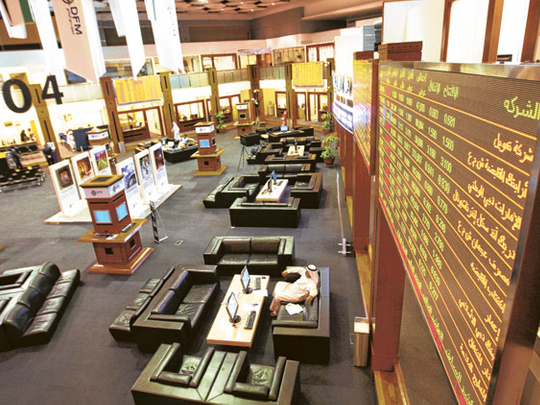
For the third consecutive time, Index provider Morgan Stanley Capital International (MSCI) Inc has extended the review period for the potential reclassification of the UAE and Qatar to "emerging markets" status — this time to June 2012 — a move that has harmed the reputation of both markets in global financial circles.
The extension of the review period for the potential listing of the UAE and Qatar stock exchanges on its Emerging Markets Index has led both markets to lose some of the momentum they gained before the announcement. It is unknown whether MSCI will upgrade the stock markets from their current frontier ranking after six months, or it will extend the classification review again.
It is logical to assume that they will extend the review again, given that MSCI Inc keeps on placing new conditions regarding old issues, such as the liquidaty of stocks in the UAE and the foreign ownership in Qatar, which was used as a pretext for the last refusal.
But MSCI could have easily referred to the issue in its first rejection to enable both countries to take the appropriate measures necessary to solve the issue.
However, the administrations of the UAE and Qatari stock markets did not select the proper time to apply to MSCI to be upgraded to emerging market status.
The requests by both countries were submitted during the global financial and Eurozone crises, while depression was engulfing the global economy. This means that even if the two stock markets were qualified to be reclassified and upgraded on MSCI index, the desired returns will be very limited.
Local circumstances
It seems that both markets' administrations did not take into consideration the circumstances of local Gulf markets, nor the deteriorating global financial and banking situation. In fact, local markets suffer from considerable disruption and lack of liquidity — which does not encourage local investment. It is questionable how, in light of this, it is possible to attract foreign investment, especially the institutional investors.
Global liquidity is no better than that in the Gulf, despite the fact that Gulf economies have huge cash reserves and their economic situation is good. But the problem is that financial markets are currently suffering from an outflow of cash liquidity.
The exchanges should have taken all these factors into account before rushing to apply for the upgrade, a move that led to negative results from which daily speculators have benefited, as we have seen during the past few days.
Some markets opened new horizons for speculators by allowing trading in small fractions which raised the intensity of speculation especially by small traders.
One of the most important goals behind the upgrade on the MSCI index was to elevate the two markets by attracting more foreign capital.
But how can this be accomplished in the light of cash scarcity and restrictions on foreign ownership, especially in the bank sector in both countries?
Apart from listing on the MSCI emerging markets index, GCC markets must develop their structure to, protect them from daily speculation in small fractions of 1 fils by market makers. This will help curb speculation and boost individual and institutional investment in the medium and long term.
In the meantime it is also important to increase transparency, disclosure and governance in GCC financial markets.
Unlike their stock markets, GCC economies are achieving high growth rates similar to those in emerging economies such as China, India, and Brazil.
Developing GCC financial markets to the level of emerging stock exchanges, which have moved up to record levels lately, is more important than their reclassification on the MSCI index. Their development will lead the GCC stock markets to maturity and make its reclassification on MSCI Emerging Markets Index a reality.
Dr Mohammad Al Asoomi is a UAE economic expert and specialist in economic and social development in the UAE and the GCC countries.












